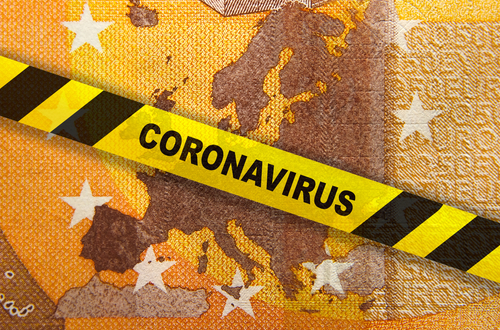Deadline: 6-May-21
European Commission is calling applications for Research Infrastructure Services for Rapid Research Responses to COVID-19 and Other Infectious Disease Epidemics.
Proposals under this action, will integrate research infrastructure services to form a comprehensive and inclusive portfolio to support research in response to infectious disease epidemics or underpinning respective forefront research in the field. As a first immediate challenge, the delivered services should support research targeting newly emerging SARS-Cov-2 variants and addressing the on-going COVID-19 pandemic.
Proposals will support the provision of trans-national and/or virtual access to researchers as well as training for using the infrastructures, and activities to improve, customise and integrate the services the infrastructures provide, so as to facilitate and integrate the access procedures and to further develop the remote or virtual provision of services.
Funding Information
The check will normally be done for the coordinator if the requested grant amount is equal to or greater than EUR 500 000, except for:
- public bodies (entities established as a public body under national law, including local,- regional or national authorities) or international organisations; and
- Cases where the individual requested grant amount is not more than EUR 60 000 (low value grant).
Expected Outcomes
Project results are expected to contribute to all the following expected outcomes:
- comprehensive catalogue of research infrastructure services relevant to tackle infectious diseases epidemics is available, including services supporting pertinent social sciences research;
- fast assembly and provision of innovative, customised and efficient research infrastructure services to support research linked to detecting, assessing and combatting newly emerging SARS-CoV-2 variants;
- challenge driven integration of research infrastructures to better support research addressing infectious diseases and face epidemics, including for use by epidemics risk assessment and risk management bodies (such as the European Centre for Disease prevention and Control (ECDC), the World Health Organisation (WHO), the World Organisation of Animal Health (OIE) and national epidemics management bodies);
- rapid response to epidemics outbreaks through research infrastructure services underpinning and supporting research aiming to understand causes and development of the epidemic;
- development of novel/adapted epidemics intervention tools and measures enabled by relevant research infrastructure (RI) services;
- availability of research data emerging from access provision activities for re-use on common data platforms and registries, according to FAIR principles and compliant with legal provisions under the General Data Protection Regulation (GDPR).
Expected Impacts
Proposals should set out a credible pathway to contributing to several of the following impacts
- enhancement of EU capacity to identify, characterise and mitigate the effects of COVID-19 virus variants of concern, and future emerging pathogens of public health concern;
- reinforced research infrastructures capacity to provide at scale and across the EU services to support excellent research to address societal challenges, and Horizon Europe objectives;
- enhanced and increased society’s long-term and consistent problem-solving capacity and evidence-based policy making in areas linked to health, including a better understanding of socio-economic implications, through the provision of innovative, customised and efficient RI services;
- new discoveries and knowledge breakthroughs enabled by access provision to the best and in some cases unique state-of-the-art RIs;
- a new generation of researchers trained to optimally exploit all the essential and advanced tools for their research.
Eligibility Criteria
Entities eligible to participate
- Any legal entity, regardless of its place of establishment, including legal entities from non associated third countries or international organisations (including international European research organisations) is eligible to participate (whether it is eligible for funding or not), provided that the conditions laid down in the Horizon Europe Regulation have been met, along with any other conditions laid down in the specific call topic.
- A ‘legal entity’ means any natural or legal person created and recognised as such under national law, EU law or international law, which has legal personality and which may, acting in its own name, exercise rights and be subject to obligations, or an entity without legal personality.
Entities eligible for funding
To be eligible for funding, applicants must be established in one of the eligible countries:
- the Member States of the European Union, including their outermost regions;
- the Overseas Countries and Territories (OCTs) linked to the Member States;
- eligible non-EU countries:
- countries associated to Horizon Europe;
- low- and middle-income countries.
Consortium composition
Unless otherwise provided for in the specific call conditions, legal entities forming a consortium are eligible to participate in actions provided that the consortium includes:
- at least one independent legal entity established in a Member State; and
- at least two other independent legal entities, each established in different Member States or Associated Countries.
Other Eligibility Conditions
- The following additional eligibility criteria apply: Given the specific nature of this action, access provision activities must be included in the proposal. Please read carefully the provisions under the section “Specific features for Research Infrastructures” at the end of this work programme part before preparing your application.
- Due to the urgency and geographical relevance of this action and considering the Union’s interest to retain, in principle, relations with the countries associated to Horizon 2020 and other third countries in the process of association to Horizon Europe, legal entities established in Albania, Armenia, Bosnia and Herzegovina, Faroe Islands, Georgia, Iceland, Israel, Kosovo, Moldova, Montenegro, Morocco, North Macedonia, Norway, Serbia, Switzerland, Tunisia, Turkey, Ukraine and United Kingdom are eligible for funding from the Union even if the Horizon Europe association agreement with the third country concerned does not apply at the time of signature of the grant agreement.
- The consortium must include at least one independent legal entity established in a Member State and at least two other independent legal entities each established in different Member States or countries.
For more information, visit https://bit.ly/3x5r1XE.
